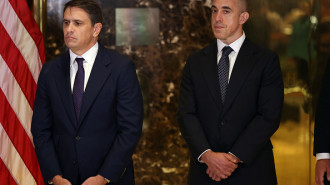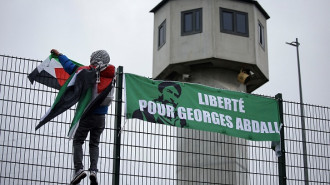United States welcomes Russian-Turkish cooperation
"We remain in close contact with our Turkish allies and our partners in the fight against Daesh," State Department spokeswoman Elizabeth Trudeau said, using another name for the Islamic State group.
Working against the group "is a priority for all of us," she said. "If this is truly a step in that direction, we would welcome that."
Pressed by reporters to confirm the US reaction, Trudeau said, "We've been very clear that if Russia is interested in fighting against (the IS group)," then "we would welcome that."
How that cooperation would work is unclear. Moscow is allied with President Bashar al-Assad of Syria, while Ankara has supported rebel groups seeking his overthrow in a bloody civil war.
But Russian-Turkish relations have warmed amid pique in Ankara that Washington and other Western capitals did not seem more supportive after the attempted military coup against President Recep Tayyip Erdogan last month.
Erdogan travelled to Moscow on Tuesday to meet with Russian President Vladimir Putin.
On Thursday, Turkish officials representing the army, intelligence agencies and the foreign ministry were in Russia for talks on Syria, according to Turkish Foreign Minister Mevlut Cavusoglu.
US Secretary of State John Kerry met with Putin last month to discuss coordinating the two countries' airstrikes against IS militants and their allies.
Also on Thursday, the United States expressed concern about mounting reports of alleged use of chemical weapons against civilians in Syria, including during an attack in Aleppo a day earlier.
Washington is "very concerned about the increasing number of allegations of chemical weapons use over the last few weeks," Trudeau said.
The United States and Russia are responsible for overseeing a UN resolution from late 2013 to dismantle the Syrian government's chemical weapons arsenal.
Confirmation that Assad's regime has used such weapons since then would constitute a "violation" of the resolution, Trudeau said.







 Follow the Middle East's top stories in English at The New Arab on Google News
Follow the Middle East's top stories in English at The New Arab on Google News


![Aid Gaza [Getty]](/sites/default/files/styles/image_330x185/public/2010004231.jpeg?h=cb957c44&itok=NpHeiZFt)